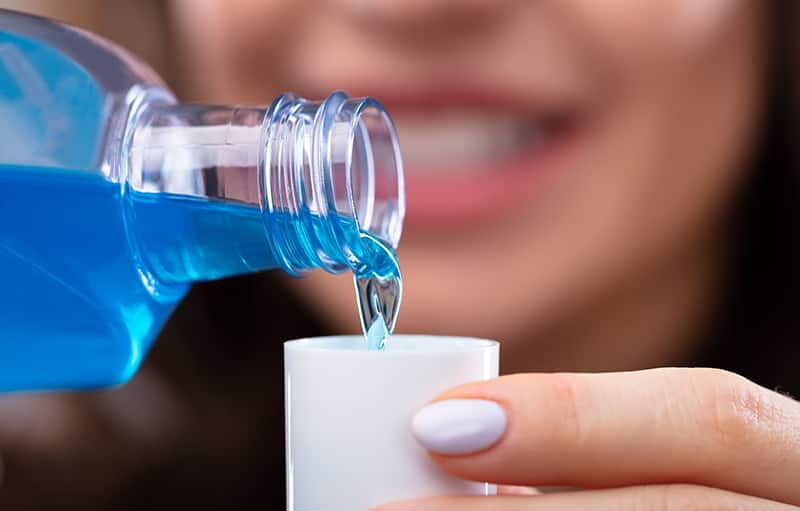Life Stages, Hormones, and Bad Breath
During certain stages in your life, you might be subject to changes or an imbalance in your hormones. And this can mess with the way your body reacts to bacteria or make you more prone to oral bacteria-breeding conditions.
Hormonal Birth Control
If you take a form of hormonal birth control, you're elevating the levels of certain hormones – oestrogen and progestin – in your body to prevent pregnancy. According to the Indian Dental Association, hormonal fluctuations, puberty, menses, pregnancy, menopause and the use of contraceptive medications all influence women’s oral health. And this reaction increases your risk for gum disease and tooth decay.
Gum disease is a leading cause of – you guessed it – bad breath, thanks to the bacteria and decay it causes. So, if you've recently started or changed your birth control, it may be the culprit behind your bad breath.
Pregnancy
Throughout pregnancy, you'll experience a distinct shift in your hormone balance. According to the Indian Dental Association, oral health is important during pregnancy and should not be neglected. The rise in hormone levels during pregnancy causes the gums to swell, bleed and trap food causing increased gum irritation. This can result in increased instances of gum disease.
Menopause
If you're in the midst of menopause, you'll experience a lack of estrogen. This oestrogen deprivation can result in unpleasant side effects such as hot flashes and mood swings. Another side effect that affects your oral health: dry mouth. This condition leaves your mouth ripe for bacteria to develop and grow, causing bad breath.
What to Do
Noticing a change in your hormones that seems to be causing bad breath? You might need to schedule visits to both your primary care physician and your dental office. It would also be a good time to step up your oral health care routine.
If Taking Hormonal Contraceptives: Check in with your prescribing doctor to inform them of your side effects. At this stage of life – or if you're pregnant or menopausal – ensure you take these steps to help kill the bacteria feeding off hormonal changes, which result in tooth decay, gum disease, and bad breath:
- Clean between your teeth daily with dental floss or another type of interdental cleaner.
- Brush twice-daily with plaque-removing fluoride toothpaste.
- Clean your tongue by gently scraping or brushing off bacteria.
- Rinse with an antibacterial mouthwash.
If Pregnant: Continue to schedule dental check-ups; it's essential to get regular dental cleanings to remove plaque and tartar. That will help you avoid the dangers of gum disease, including bad breath, gum disease, and even pre-term labour.
Make sure to discuss any concerns you might have with your OB/GYN. According to the Indian Dental Association, the hormonal changes caused by pregnancy can affect your teeth and gums. Some pregnant women develop gum tumours, but about 50 percent of pregnant women experience pregnancy gingivitis, which can turn into periodontal disease if left untreated.
If Menopausal: Talk to your doctor about hormone therapies to help manage any unpleasant side effects of menopause. Your doctor might prescribe synthetic versions of hormones to help your body get back into balance.
The hormones-bad breath connection is another demonstration of how oral health affects your entire body – and vice versa. No matter your life stage, keep your medical and oral health care professionals informed of any hormone shifts. And set up a consistent oral hygiene routine. That way, you can make sure that you'll continue to have a healthy mouth and a great smile no matter what hormonal changes you undergo.
This article is intended to promote understanding of and knowledge about general oral health topics. It is not intended to be a substitute for professional advice, diagnosis or treatment. Always seek the advice of your dentist or other qualified healthcare provider with any questions you may have regarding a medical condition or treatment.
ORAL HEALTH QUIZ
What's behind your smile?
Take our Oral Health assessment to get the most from your oral care routine
ORAL HEALTH QUIZ
What's behind your smile?
Take our Oral Health assessment to get the most from your oral care routine













